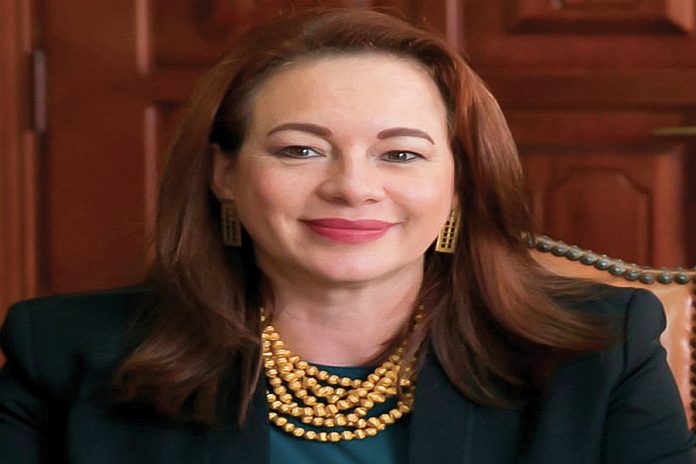By Maria Fernanda Espinosa – The Caribbean candidate for Secretary-General of the Organisation of American States (OAS).
This year is pivotal for the future of humanity and our planet. Scientists say we need greenhouse gas emissions to peak in 2020 if we are to have a chance of keeping global warming within relatively safe limits. If we do not achieve this, we risk experiencing the most devastating impacts of climate change, including crippling hunger and poverty.
The planet has already warmed by 1°C above pre-industrial levels. Consequently, we are seeing rising sea levels, more frequent and intense storms, drought, heat waves and other extreme weather events.
Just 15 of the worst weather events in 2019 caused at least US$135 billion in damage. The US alone suffered 14 weather and climate disaster events with losses exceeding US$1 billion each. And the world has looked on in horror at the devastating fires in Australia following a lengthy drought.
But the results of inaction on climate change strike the poorest the hardest. I have seen this first-hand in Nigeria, Chad, Niger, the Lake Chad region of Cameroon and across several countries in Latin America and the Caribbean. Changes in rain patterns and frequent droughts there have dented some of the hard-won developmental gains of the past 70 years. Millions of people have had their lives and livelihoods wrecked; they have experienced worsening hunger, poverty, conflict and displacement. The most vulnerable populations have been impacted the most, especially women, children and elderly people.
Power of multilateralism
Multilateralism and co-operation are our best tools to tackle both hunger and climate change. No country can do it alone: we must act collectively and responsibly.
The Sustainable Development Goals (SDGs) and Paris climate agreement, both agreed in 2015 are mutually reinforcing and a powerful way to tackle the challenges we face.
Without climate action, we will not have sustainable development. The climate crisis is the biggest threat to the SDGs, including the goal of reaching zero hunger by 2030. If global warming continues unchecked, it is likely to cause failing crops, rising food prices and put millions more people at risk of hunger already have a long way to go to end undernutrition. The number of hungry people has risen since 2015, and a little over 820 million people are now undernourished—about 11 percent of the world’s population. We need to work together on how best to use the world’s limited land resources to feed a growing population while at the same time planting more trees and producing more biofuels to help mitigate climate change.
Individual change
But multilateral cooperation alone is not enough; we each need to make changes individually.
Our food system is a major source of planet-warming emissions—comprising between 21 percent and 37 percent of the total. The challenge is how we can keep those emissions in check while feeding a population which is set to rise from 7.76 billion today to 9.7 billion in 2050.
Clearly, we need to change our consumption patterns. The UN’s Intergovernmental Panel on Climate Change says eating a healthy and sustainable diet—high in grains, pulses, fruits and vegetables and low in animal products and sugary foods—would be a major contributor to reducing emissions.
We also need to waste less. About one-third of food produced—approximately 1.3 billion tonnes, is lost or wasted every year. Between 2010 and 2016, global food loss and waste contributed about ten percent of greenhouse gas emissions.
Preventing catastrophe
Nicholas Stern, the economist, warned the economic impact of climate change could be as much as 20 percent in 2006. We have just ten years to avoid the worst impacts of climate change, and our generation is the last to be able to prevent climate catastrophe.
It is also a generation of unique opportunity to ensure that every person on the planet has enough nutrition to thrive. It is our responsibility to end the scourge of hunger which has plagued humanity for millennia, and to do this in a way that protects the planet.
This article written by María Fernanda Espinosa originally published by The Economist Intelligence Unit.
María Fernanda Espinosa is the Caribbean candidate for Secretary-General of the Organisation of American States (OAS). The election for the post of Secretary-General will be held in March 2020.







